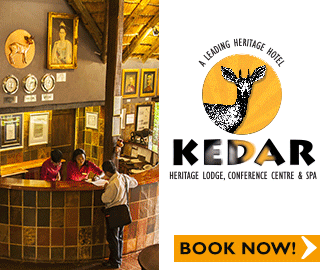
RWANDA - Vision Towards 2020
BY BRUCE GERMAINE 27 JUNE, 2016 08:42
The 26th World Economic Forum on Africa 2016 recently held in Kigali put the landlocked country of Rwanda in the spotlight. Ranked within the top five fastest growing economies in Africa among Cote d’Ivoire, Ethiopia, Mozambique and Tanzania, the IMF has attributed its growth to construction, services, agriculture and manufacturing and mining.
Having vastly reduced the poverty rate from what it was before, more than 60% of the population still live in poverty as defined by the World Bank at less than $ 1.25 a day, but despite this, Rwanda deserves to be praised and admired for its economic growth since the 1994 Genocide.
With a vast post liberation development program in terms of road, school, hospitals and energy generation projects, Rwanda’s robust development agenda and its own limited budget, borrowing could not be excluded as a means of achieving the goal of being self-sufficient and ensuring a further continued positive growth rate of 6-8% average. In addition, the government of Rwanda has been able to exercise restraint when it comes to investing and has done so with productive sectors of its economy resulting in its external debt to GDP ratio being below 30% - a most attractive prospect for investors and international money institutions.
Seeking International Assistance
With Nine of every 10 adults being subsistence farmers, no oil and few minerals, Rwanda’s leadership under President Paul Kagame sought and found very influential supporters: Seattle based Costco CEO Jim Sinegal and Starbucks CEO Howard Schultz, both premium buyers of prime coffee beans, former British prime minister Tony Blair, RealNetworks founder and CEO Rob Glaser and Google CEO Eric Schmidt - all part of Rwanda's network of influential supporters.
With the launch of the Presidential Advisory Council in 2007, a think tank of leaders in their respective fields ranging from life sciences to economic development consultants, it has produced significant inroads resulting in major investments in the country such as a Frankfurt-based financial-services company launching an East Africa private-equity fund that invested in a Kigali bank and a Rwandan banking-IT company.
The Rwandan president’s strategy of procuring wealthy and powerful friends to attract private investment with the aim of building a globally competitive economy is producing results. Actions do speak louder than words and so far it is working in terms of major investments in Rwanda by international companies, that apart from the question that keep on cropping up about President Kagame's involvement in the region's ongoing conflicts.
It is Presidents Kagame’s firm belief that the past will never happen again, especially since he believes that poverty played a major role in exacerbating tensions that led to the 1994 Genocide.
“We must create opportunities for higher wages so that conditions for tolerance, trust and optimism are in place.”
However, President Kagame’s also realizes that change is inevitable when it comes to foreign help: "No country can depend on development aid forever. Such dependency dehumanizes us and robs us of our dignity."
Rwanda’ goals are clear: to significantly boost the GDP , create paying jobs for Rwanda's subsistence farmers, increase the per capita income to $900, and transform Rwanda into an African center for technology - all this by 2020.
Economic Growth Going Forward
According to the World bank, the private sector will continue to play a major role in sustaining Rwanda’s economic growth with the issue of providing constant efficient power remaining a challenge. This should be eased with the 26 megawatt KivuWatt power plant near Lake Kivu – an ambitious methane gas project which plans to exploit the estimated 60 billion cubic meters of methane gas which will be extracted from beneath the lake to generate electricity.
The country is in the midst of a rapid expansion to its electrical grid, including the installation of smaller solar power units which will ensure that structures that are not connected to the national grid will continue to be productive, as well as maintaining productivity during power outages.
Finance and Economic Planning minister Claver Gatete is optimistic that this and other projects will "gradually lessen the impact of electricity constraints and spur more investment.
Rwanda and the IMF
The International Monetary Fund forecast 6 % growth this year compared to 6.9 % last year with Rwanda’s economy expected to slow down but resume pace in 2018. If Rwanda is in a position to stick to its commitment of a more cautionary monetary policy by curbing public spending and reduce the demand for imports, the IMF expects that a successful implementation of economic policies should ensure the projected 6% growth rate coupled with keeping inflation below 5 %.
Although the Rwandan economy in 2015 was buoyed by construction, services, agriculture and manufacturing, mining was lower than before - a result of lower prices and lower demand for Rwanda’s minerals causing a significant loss of export revenue. According to Laure Redifer who led an IMF mission to Rwanda, further foreign revenue was also lost due to a lower than expected inflow of private capital and remittances, together leading to further pressure on the Rwanda Franc and foreign exchange reserves.
Progression and Economic Liberation
In terms of learning from the past, Rwanda has made some very important socio-economic changes in the last 20 years – the coffee production industry a case in point where freeing up the markets have benefitted the poor.


This type of economic liberalization has helped more than half a million families . More than 20 years ago this sector was highly regulated by the government which exploited the coffee industry as a key source of revenue. Farmers were forced to dedicate at least a quarter of their land to growing coffee which the government bought from them at below market prices, the coffee beans were then sold on the international markets at a higher price and profits were not passed onto the farmers. This type of backward “economic” assistance to its own citizens was in fact a legal way to rob the farmers of their due profits, that apart from a levied export tax that farmers also had to carry the burden of.
After the Genocide this scheme came to an end and President Kagame’s government liberated the coffee industry by allowing coffee bean producers to freely trade with international buyers. By increasingly focusing on quality rather than quantity with the freedom to trade in a liberated economic environment, countless households experienced a surge in income as demand for better coffee beans increased leading to an economic upturn in terms of paying for school fees, paying medical bills, clothing and a general increase in living standards. This also contributed towards a more harmonious society between Hutus and Tutsis – a crucial corner stone in maintaining law and order in post 1994 Rwanda.
Foreign Aid
Foreign aid, often a savior yet also the proverbial sword of Damocles, is almost necessity for struggling African countries. It requires enormous fiscal discipline and attainable long term goals and the danger of degenerating into a never ending cycle of dependency that so many African countries get trapped in is a very real possibility, a fact that has not escaped President Kagame’s vision into the future.
A strong dependence on subsistence agriculture that employs more than 50% of the labor force and an excessive dependence on foreign aid which supplements up to 40% of the government budget are just some of the challenges that Rwanda will have to tackle head on in the future.
The all too common problem of a budget and a never ending trade deficit create high levels of government debt that will have to eventually be repaid. More than two thirds of Rwanda’s debt is owed to the World Bank.
A government initiative – Rwanda Vision 2020 – is aimed at achieving long term development goals such as diversifying Rwanda’s subsistence economy into a more diversified one thus loosening the shackles of foreign debt. This should be achieved by letting markets regulate themselves with minimal government intervention where the private sector is able to provide goods and services more efficiently than the government, these and other pro-market economic policies are an ongoing strategy designed to attract foreign investments.









